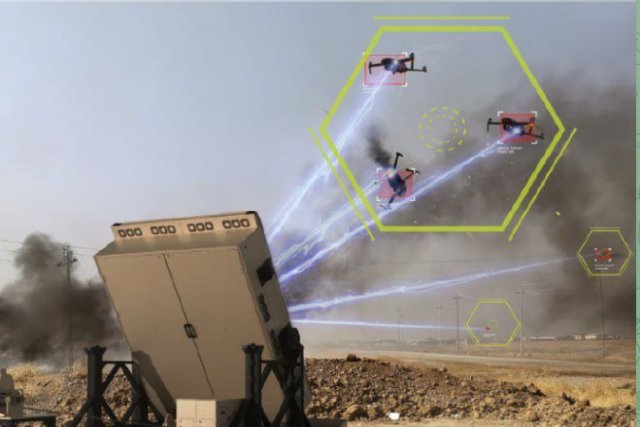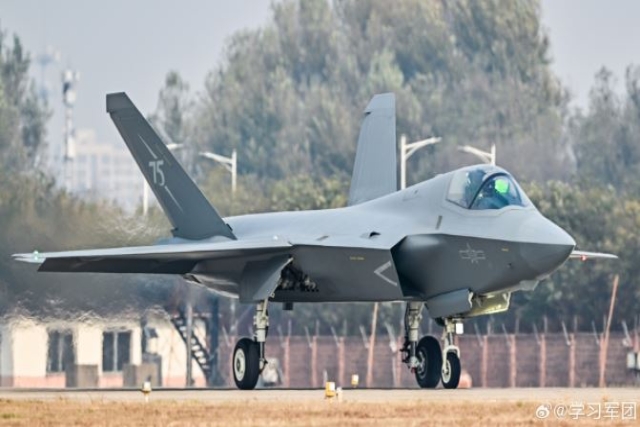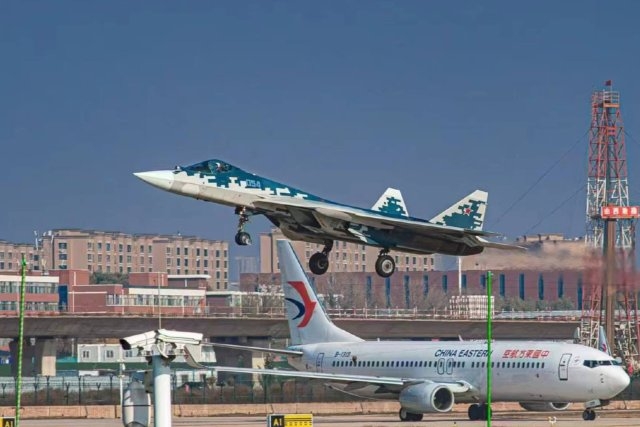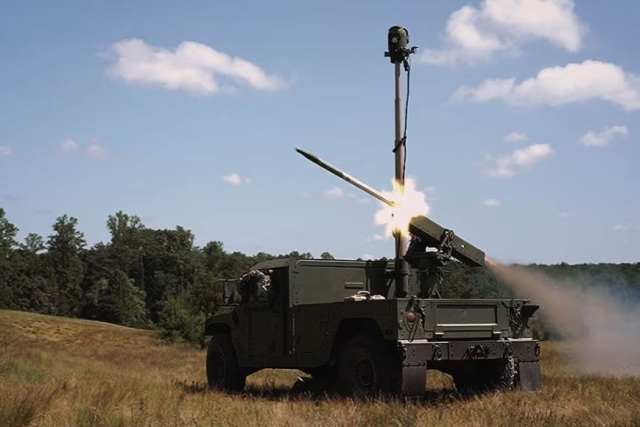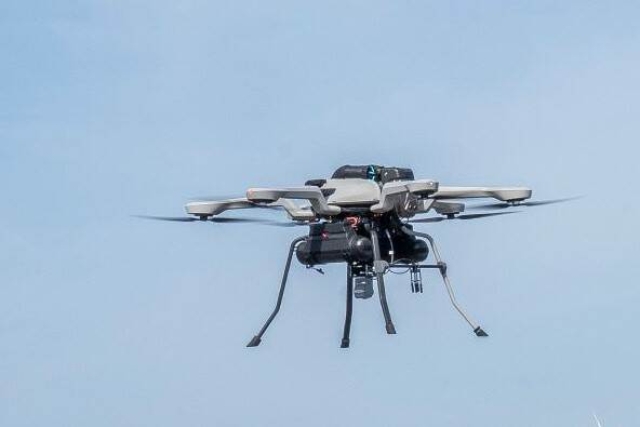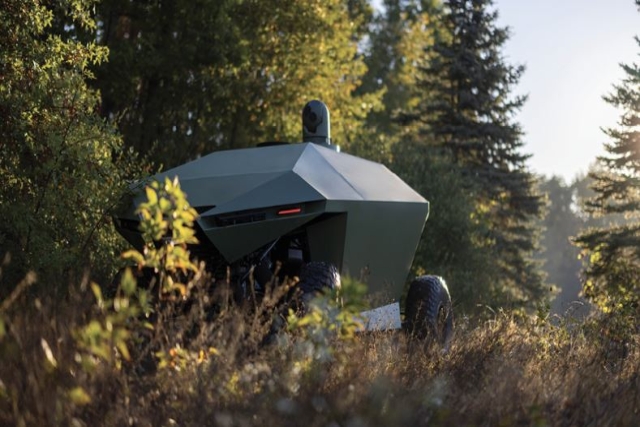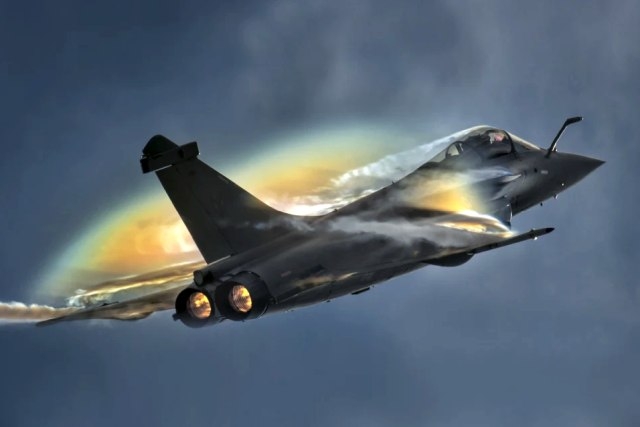J-15T, J-35A Jets Indicate China Growing Carrier-based Aircraft Prowess
China focuses on enhancing aircraft carrier capabilities with upgraded jets at Airshow China 2024.
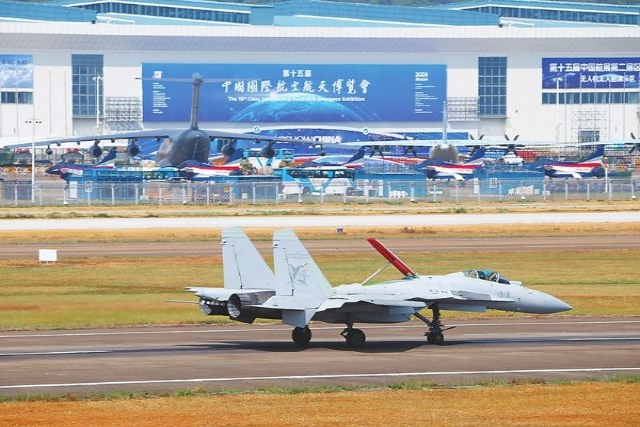
At the ongoing Airshow China 2024 in Zhuhai, China has revealed upgraded versions of to its two aircraft carrier based aircraft, the J-15T and the J-35A which can operate from the new aircraft carrier, the Fujian which has Catapult Assisted Take-Off Barrier Arrested Recovery (CATOBAR).
The J-35A, China’s new stealth fighter, debuted at the Zhuhai show. The People's Liberation Army (PLA) Air Force’s announcement of the J-35A suggests it has entered service, meeting PLA standards for performance, safety, and reliability. With its commissioning, China becomes the world’s second country to operate two types of stealth fighter jets.
The J-35A differs from China’s first stealth fighter, the J-20. The J-20 is a heavy, air-superiority fighter with a canard wing, similar to the U.S. F-22. The medium-sized J-35A, which has a tailplane wing like the U.S. F-35, is designed for strong surface attack capabilities. The J-20 and J-35A could complement each other in joint missions. The J-35A's lower cost also allows for quicker mass production.
The mission of the J-35A is to seize and maintain air superiority, counter hostile fourth- and fifth-generation fighter jets and ground/surface air defenses, and intercept aerial threats, including fighters, bombers, and cruise missiles.
Earlier carriers, such as the Liaoning and Shandong, feature a ski-jump take-off system, relying on engine power for take-off and landing. The Fujian, however, matches U.S., French, and British carriers that use assisted take-off and landing. Future Chinese carriers are expected to adopt the CATOBAR system, which enables faster take-offs and landings compared to ski-jump decks.
The "A" in the J-35A designation likely indicates variant potential. The J-35A, a multi-role fighter for the air force, was spotted on the aircraft carrier Liaoning at Dalian Shipyard in September 2024. When ready for operations, it could carry the "T" designation like the J-15T, which in Chinese stand for "tanshe," or catapult-launched.
According to the Global Times, the J-15T features a new nose dome, likely housing an advanced AESA (active electronic scanning array) radar, enhancing its compatibility with the latest airborne weapons and positioning it as a 4.5-generation fighter, comparable to the U.S. Super Hornet and French Rafale. As an upgrade of the original J-15, the J-15T incorporates advanced radar, weapons, and compatibility with catapult launch systems, according to Chinese military expert Zhang Xuefeng.
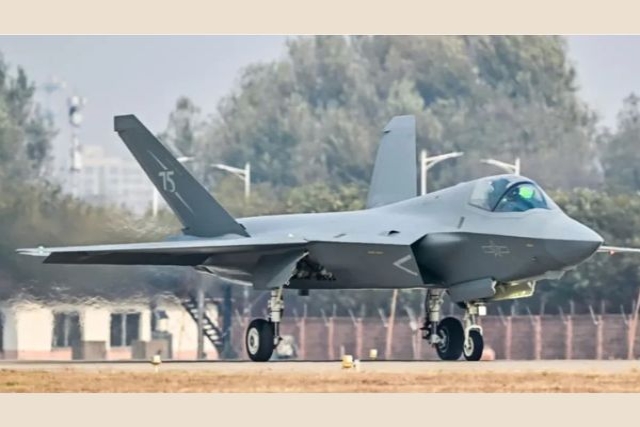
The J-15T landed at Zhuhai on Wednesday, marking the PLA Navy’s first participation in an Airshow China event. The bulkier front landing gear on the J-15T accommodates the high tractive force of catapult launches. Originally designed for ski-jump carriers, the J-15T remains compatible with China’s older carriers, Liaoning and Shandong.
Before the J-15T’s official announcement, upgraded J-15s appeared in media reports on a dual-carrier exercise involving the Liaoning and Shandong in the South China Sea in October. Photos from Xinhua News Agency showed J-15s with light gray radomes, in contrast to the deep gray radomes previously used. Comparing these photos, Zhang confirmed that the new J-15T model includes an updated nose dome, likely indicating the use of advanced AESA radar, further enhancing the fighter’s capabilities.
